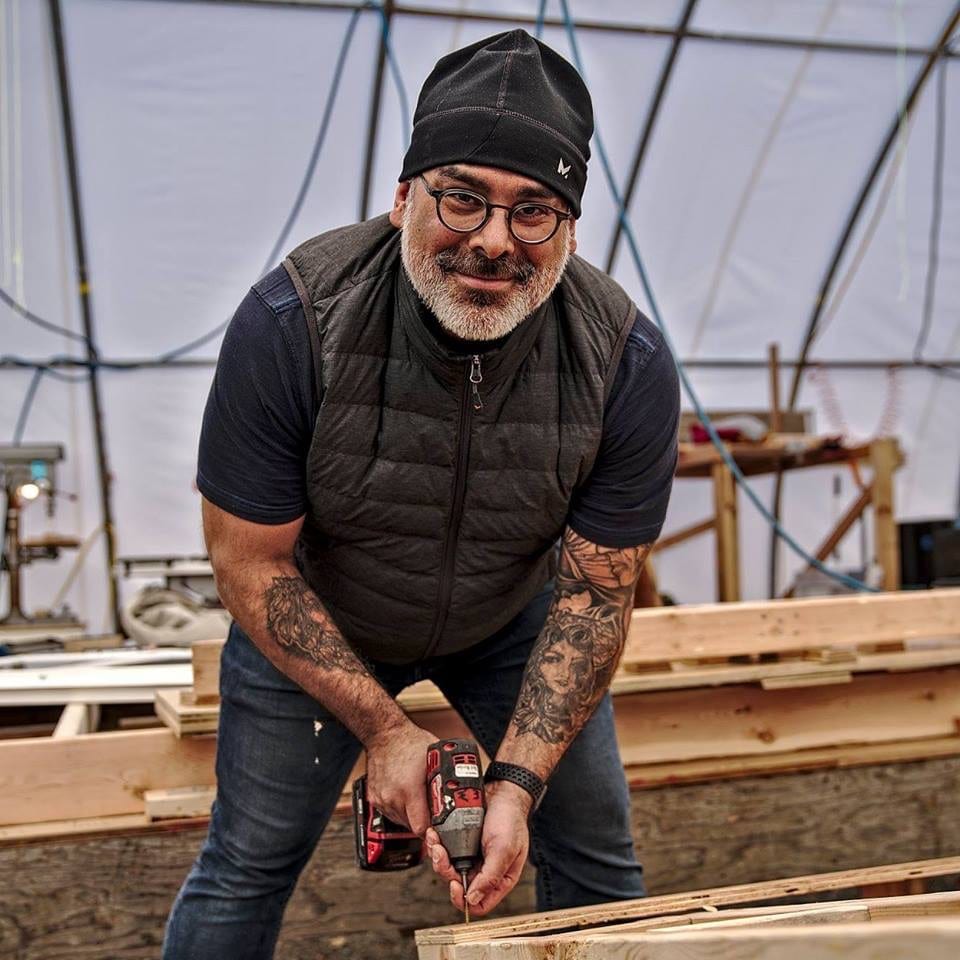 As City Light’s environmental equity advisor, Christopher Peguero is implementing a culture shift in the way the utility does business.
As City Light’s environmental equity advisor, Christopher Peguero is implementing a culture shift in the way the utility does business. Christopher Peguero is in a unique position at City Light, one that was born from his motivation to provide a voice for under-represented groups in our community. As City Light’s environmental equity advisor, Christopher uses the City’s Race and Social Justice Initiative (RSJI) as a tool to implement a culture shift in the way that City Light does business. As the founder of the City of Seattle’s SEqual affinity group, Christopher also advocates workplace equality for all City employees, regardless of gender identity or sexual orientation.
Christopher has been with City Light for 10 years, and he holds a degree in sociology from the University of Wisconsin Stevens Point. He lives in Beacon Hill with his husband Anthony Potter and their children Alexander and Adela. In this week’s Seattle City (spot)Light, Christopher talks about how (and why) issues of equity became the focus of his job.
“Race and social justice, equity and engagement have always been central to my work in the environmental sector. I wanted to deepen my knowledge of how you do that work, especially in a large municipality. When I began my work at the City, I spent three years on the City of Seattle Race and Social Justice Initiative Core Team.”
“I’m a multi-racial person; I’m of Mexican and Native American and European descent. I am also gay. In my work with the RSJI team, I asked the question ‘How does LGBTQ equity fit in with the City’s RSJI policy?’ The answer was that the City leads with race,” said Christopher.
“Race is most central to addressing institutional oppression since it is central to historical inequity in the United States. I feel that an inclusive model is the only way that we will ever reach collective liberation from institutional oppression. I wanted to bring LGBTQ concerns to the table too, so I started the City’s LGBTQ affinity group, SEqual. SEqual has been around for seven years now.”
“Later, I proposed a three-year pilot program at City Light looking at environmental justice issues, because I wanted to integrate the work that RSJI was doing into City Light’s environmental work. Simultaneously, the mayor came out with the Equity & Environment Agenda, so that dovetailed nicely. My proposal was accepted and now we are looking at how to make it a permanent program.”
“Traditionally, the environmental sector has been led by white, affluent folks, and often this work tended to benefit that same demographic, not necessarily by intention but because that’s how it evolved and who was at the table.”
“My focus is working with tribes, immigrant and refugee communities, people of color, low-income and limited English proficient communities. Environmental equity looks at developing pathways of opportunities towards employment in the environmental sector and towards influencing environmental policies that have traditionally not centered the needs of these demographics.”
“Now the environmental movement (at least in Seattle) is having a deeper conversation about what inclusion and engagement looks like. The question we’re asking is ‘as we are addressing environmental issues, is there a way to look at disparity as part of the puzzle? Is there a way that all people can share the benefits of environmental progress?”
“We are proudly committed to our work in the environment and conservation at City Light, but there is a need for environmental equity too. There is an opportunity for City Light to lead in the energy sector around this work.”
“We have a strong RSJI program along with the mayor’s Equity & Environment Agenda, and with these two policy commitments at City Light, I believe we have a structured foundation to move toward positive outcomes for communities that have not traditionally been invited to the table.”
“It’s rare for anyone to find a position that really calls to them and all of their passions, and I am incredibly grateful to have found a role doing exactly that at City Light.”
